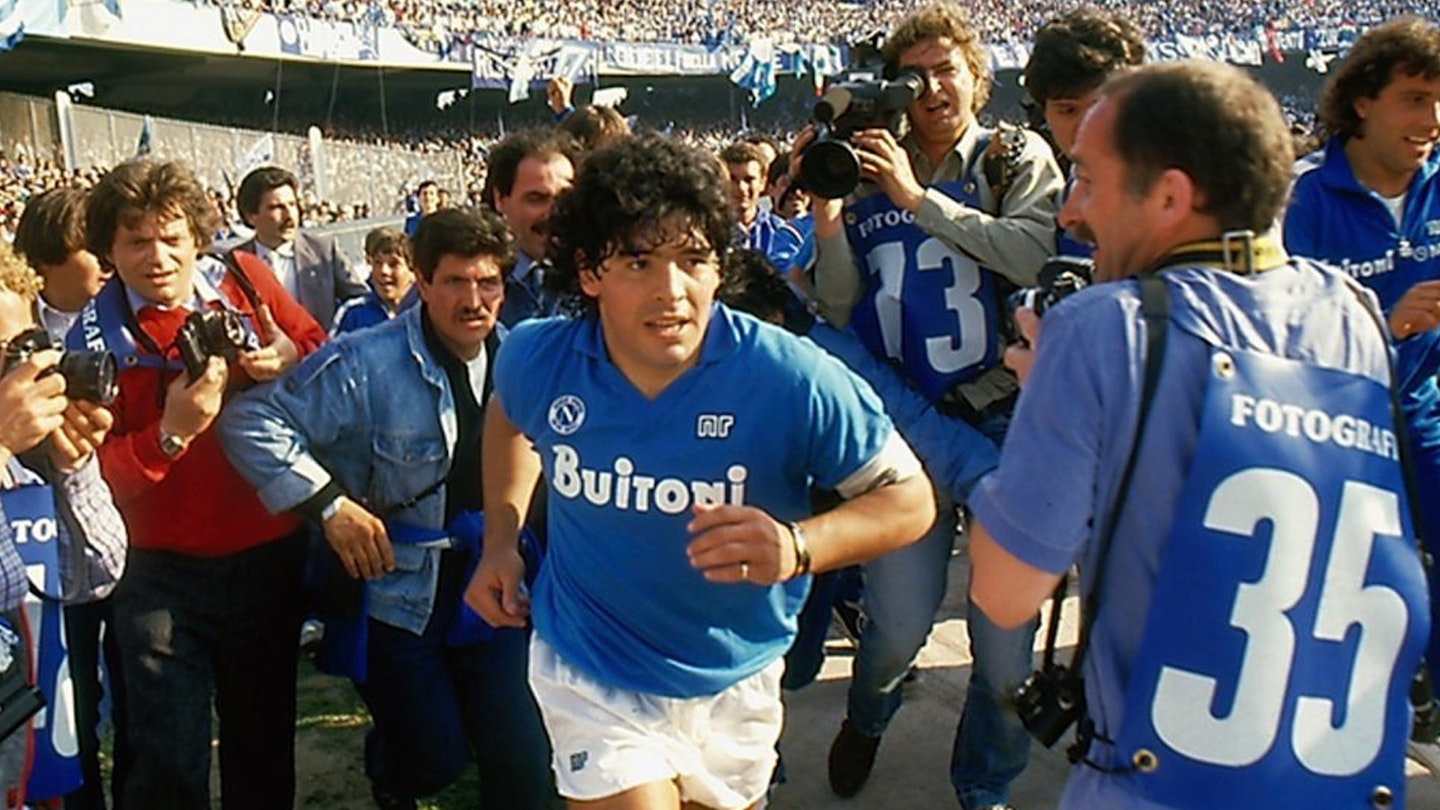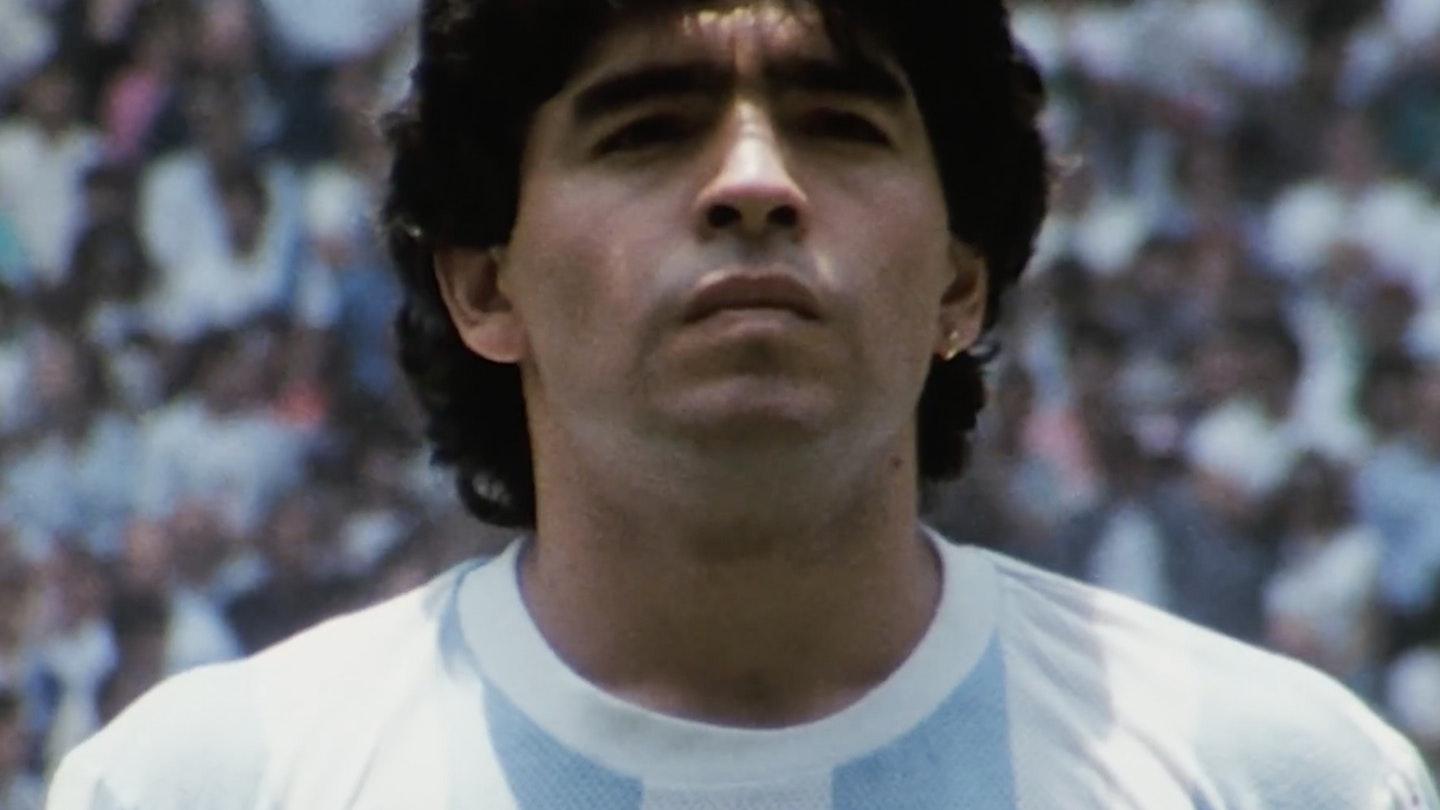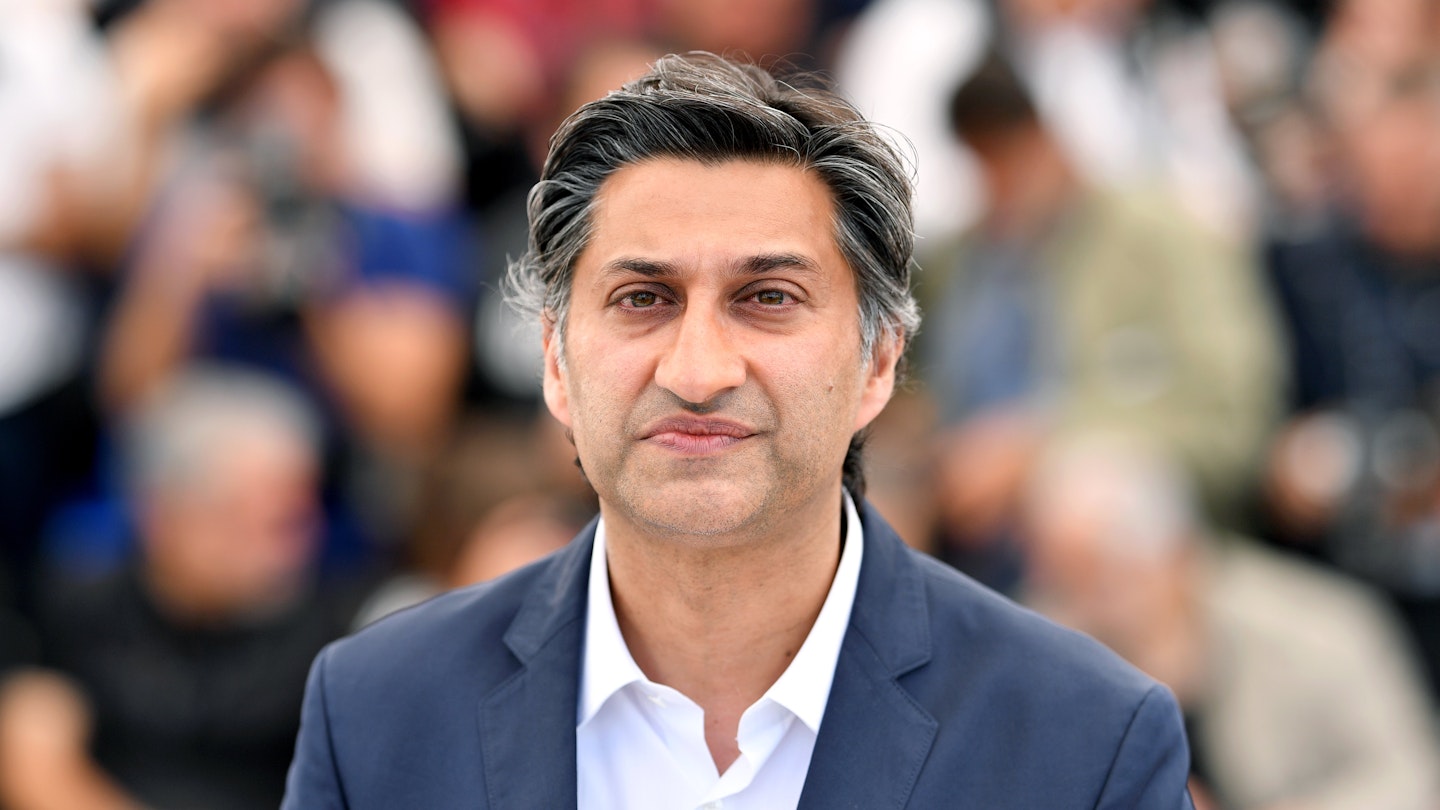The opening of Diego Maradona cuts right to the chase: with a lo-fi set-piece of the footballer driving through Naples the day he signed for the club — the high point of his galloping, giddying rise in the beautiful game. But, as becomes clear: not everything about the game, or those who play it, is beautiful.
Oscar-winning director Asif Kapadia has established his not-insignificant skill at revealing the truth about fame and the individuals that pay the greatest price. Specifically what happens when the gap between their public and private selves threatens to swallow them whole. First with his films about Ayrton Senna and Amy Winehouse, Senna and Amy, and now with new documentary Diego Maradona.

It’s a traditional, by-the-numbers arc in many respects: poor boy from the slums to millionaire sportsman via the salvation found at the end of his feet. The major difference on his third outing: the subject is still very much alive.
The film has arguably more in common with Senna than Amy, with a narrative backbone erected from public footage and interviews offering a narration. You see Maradona on the pitch, at parties, enduring loud, chaotic press conferences with journalists jeering in front and fans screaming overhead. You follow him through his troubled start at Barcelona, to the heart of the film: his life in Italy, where he achieved a god-like status; a verging-on-unbearable mania erupting around him. The glory he hungered for — it’s clear — is both the best and worst thing that could have ever happened to him.
The picture Kapadia paints is pin-sharp: the unimaginable strain of a very unreal life on a very normal man. It’s clear how his fall from grace, when it came, could never have been anything but brutal. And while the genius on the grass is clear, what is less clear is what happens off the pitch.
The tragedy is clear and keenly felt.
Kapadia had access to 500 hours of never-before-seen footage from Maradona’s personal archive but still, it feels underused and narratively slight — little flesh being added to the bones. Maradona’s private world, true, innermost feelings, only briefly coming to the fore. There are quick flashes of the strain and pain that either turned him onto drugs or accelerated his descent; that led him into the arms of the local Mafia, that saw him deny his own son.
And though Maradona is interviewed, he is unable to really speak to a deeper personal truth; to offer the texture you so desperately want. This is, after all, a man who, post the 1990 Argentina versus Italy World Cup match in Naples, was hated by pretty much an entire country. One that had arguably given him everything. There’s a little more substance offered by his ex-wife, whose interview fills in a few blanks.
Still, the final act, though nothing new, is brief and devastating — Maradona physically, emotionally, a shadow of himself. The tragedy is clear and keenly felt.
The result is impressive filmmaking, with the usual precision and intelligence of editing. But you never truly get to who Maradona is. He comes into focus and recedes again, leaving you with a full picture of the myth, if not the man.


